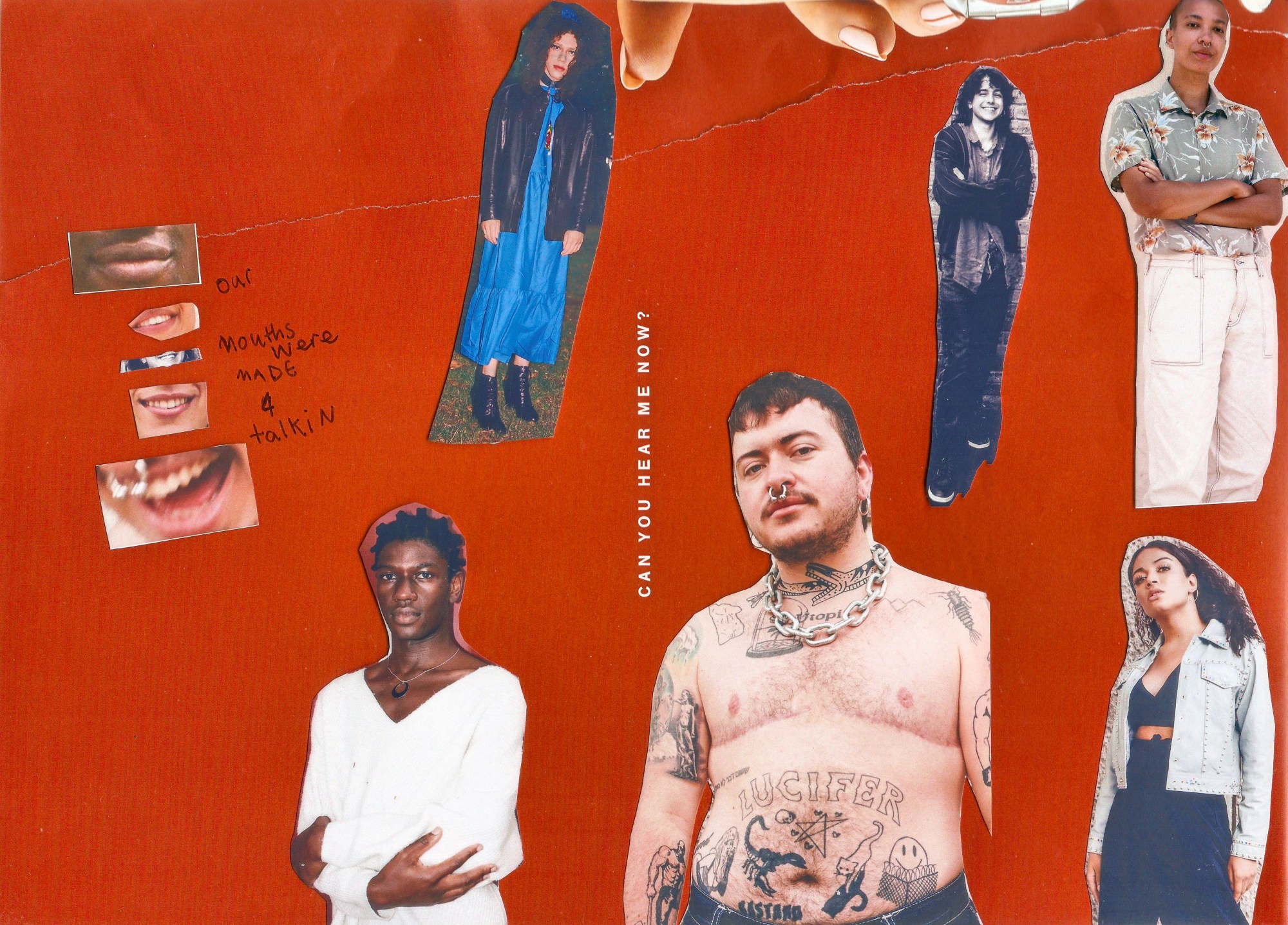Over the past few weeks, queer photographer Jesse Glazzard has spent their time biking around London, carrying a backpack loaded with film and their trusted camera. The outcome of Jesse’s venture is a series of portraits taken of some of London’s trans, nonbinary and gender nonconforming community members. “For me it’s been really important to ask my mates how they feel,” Jesse says.
The decision to publish this series comes after a chain of announcements from the UK government that pose great a threat to the trans+, nonbinary and gender non-conforming community. MPs are making harmful and dangerous decisions, like plans to drop gender self-identification and create barriers between trans+ youth and their access to healthcare.
Here, we speak to each person featured about their experiences, from the people they idolised growing up and books they wish they’d read when they were teenagers, to the moments that fill them with hope for the future. We also asked what they’d like to say to someone reading this article, and with their answers, they speak directly to you.
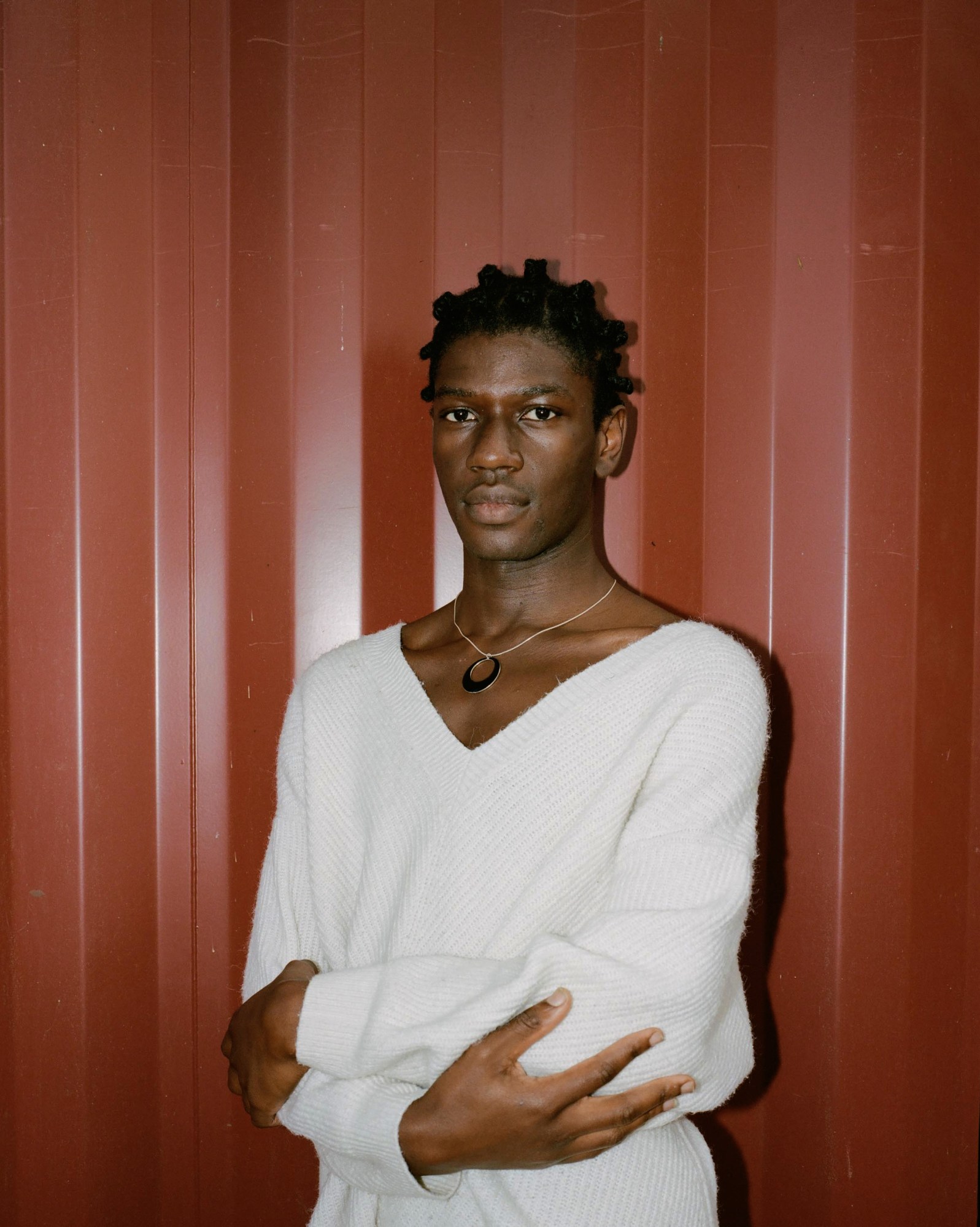
Ebun
What would you like to say to someone reading this article?
It’s gender nonconforming women, studs and butches, women of colour — particularly Black women — who will be subject to the questioning and intrusive gaze of a ‘Karen’, as well as trans women who don’t pass. The yummy mummies of East Dulwich, the BBC presenters, those rich white women will never be subject to such a gaze… their bodies always pass. Communities of colour, especially Black people, know very well that women are just as capable of violence as men. There’s a reason these mostly white women want to maintain this idea of white female innocence, it allows them to continually deploy violence under the guise of victimhood.
Have you noticed anything recently that gives you hope for the future of young trans+ and gender nonconforming people?
With regard to gender identity being taught in schools, I think this is great. I think being used to questioning gender and difference is great for children. I think everyone should be questioning their gender identity as much as possible… so learning the tools to navigate the terrain of gender at a young age is great. But I’m not reassured by this strategy since it’s not being supported by intensive community work — like going beyond children and engaging in the same conversations with their parents and elders. I think the strategy of just teaching children in schools presupposes white middle class, liberal parents, people who have a stake in and have been included in the West’s idea of progress. We have to remember that it’s the same government that said no to adding more Black history to the English curriculum just seven days ago, so how do we look at this inclusion? What bodies are actually allowed to be inserted into social life? It doesn’t seem to be bodies or ideas like mine.
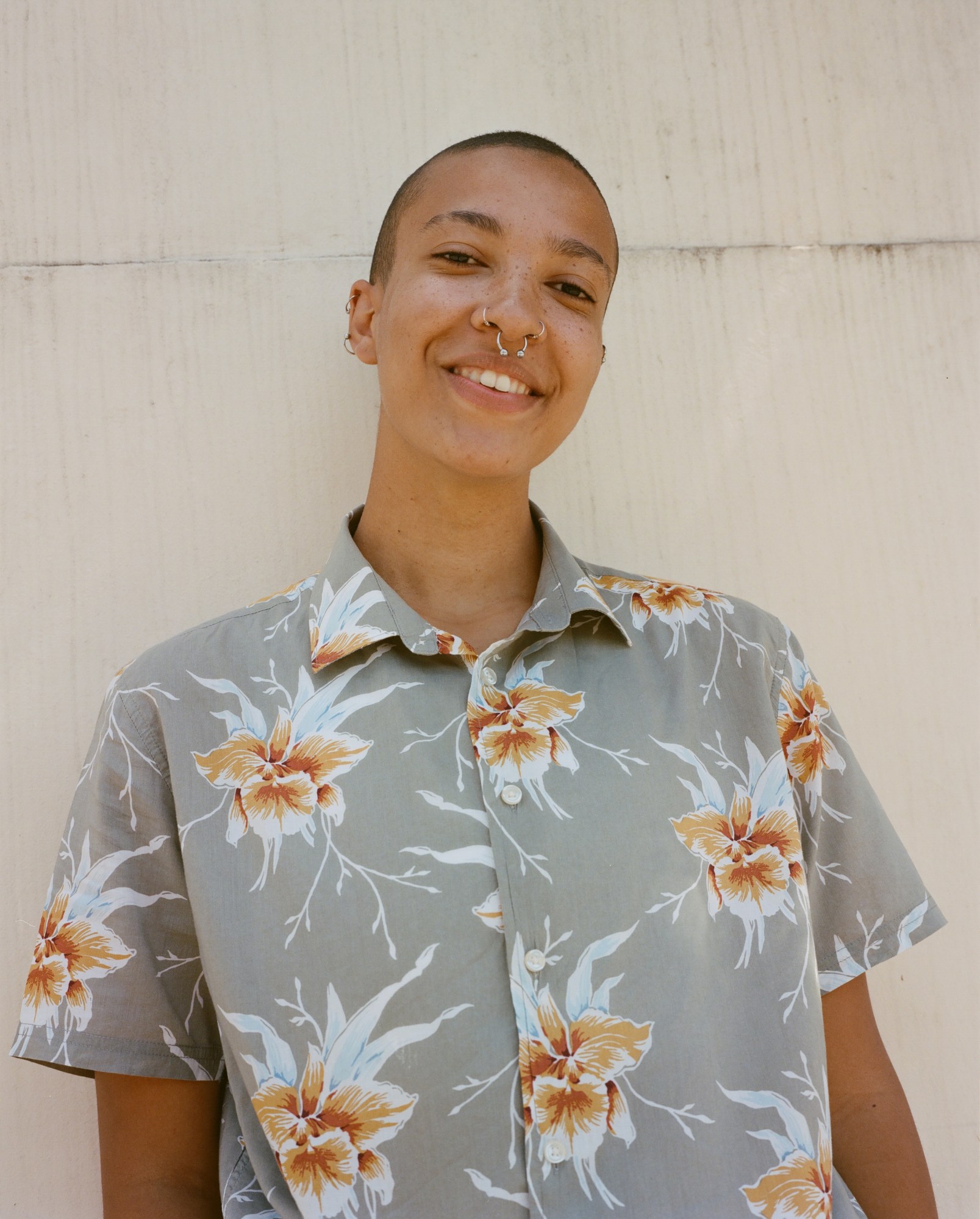
Ashton
What would you like to say to someone reading this?
As an artist who uses their paintings, illustrations and platform to bring awareness to a wide range of LGBTQI+ issues, I like to give people the benefit of the doubt a lot of the time. When it comes to individuals; I remind myself that we are all at different points of understanding and education: we are not all at the same place and that is ok. However, when someone in a prominent public position, who actually possesses the ability to make positive changes in our society, in fact, damages the physical and mental well-being of already vulnerable communities — debating their rights and identities and consequently impeding the progress towards true equality — that is not ok. Hate crimes against LGBTIQ+ people are rising in the UK and the targeted murders of Black trans women worldwide continue; yet taking to Twitter to criticise phrases such as “people who menstruate” and actions made to wind back access to healthcare for trans+ youth, is instead what takes centre stage. It’s a shame, that in the midst of lockdown and the wrath of COVID-19, where many young trans+ people have spent months in households where they cannot live freely and thrive as their authentic selves, will seek solace and safety online and there too, find their existences being questioned and scrutinised.
I’d like to personally say, when it comes to really discovering who we are and finding the words to best describe ourselves, it can take a lifetime; and that’s fine. In fact, it can be wonderful. Navigating gender, our bodies and our identities is an indescribably complex and highly personal thing but ultimately it’s a journey. I think there’s often such pressure to have things figured out and to land at an identity as if it’s this final, resolved destination. But it can be easy to forget that the journey along the way of learning who we truly are, is just as meaningful.
Looking back at your younger self, are there any books or TV shows, people or spaces you wish you’d known about that you think would be helpful to young trans+ and gender nonconfirming people today?
Like many people I’m sure, over lockdown I’ve passed the time watching stuff and in doing so I found myself reconnecting with my childhood. Rediscovering many of the things I enjoyed years ago. So I decided I would begin The Legend of Korra (sequel to Avatar: The Last Airbender) and honestly I wish my younger self had experienced it back then, for so many reasons. Despite The Legend of Korra being over eight years old, in my eyes, it’s really helped pave the way for the LGBTQ+ representation in TV and media we are seeing more of today. Korra’s character and arc is one I can only describe as inspiring; a queer woman of colour being the protagonist is so empowering to see on an animated show aimed towards teenagers. It made me think back to my younger years, being a masculine-presenting, mixed-race, closeted-lesbian who was lost and confused about herself. I just know she could’ve really done with seeing a hero like Korra on the TV-screen.
Have you experienced anything recently that gives you hope for the future?
One of the most heart-warming and truly phenomenal things to see come out of the past few months of lockdown, was the birth of the new charity organisation, Exist Loudly: founded by the amazing London-based, queer, Black youth worker; Tanya Compas. Pledging to support Queer, Non-Binary and Trans, Brown and Black young people in the UK and internationally — there’s so much to be hopeful about. It’s absolutely amazing to watch it take shape and begin to transform into this tangible programme of events, mentoring, workshops and networks centring the lives of queer young people of colour and specifically helping so many find joy and chosen-family.
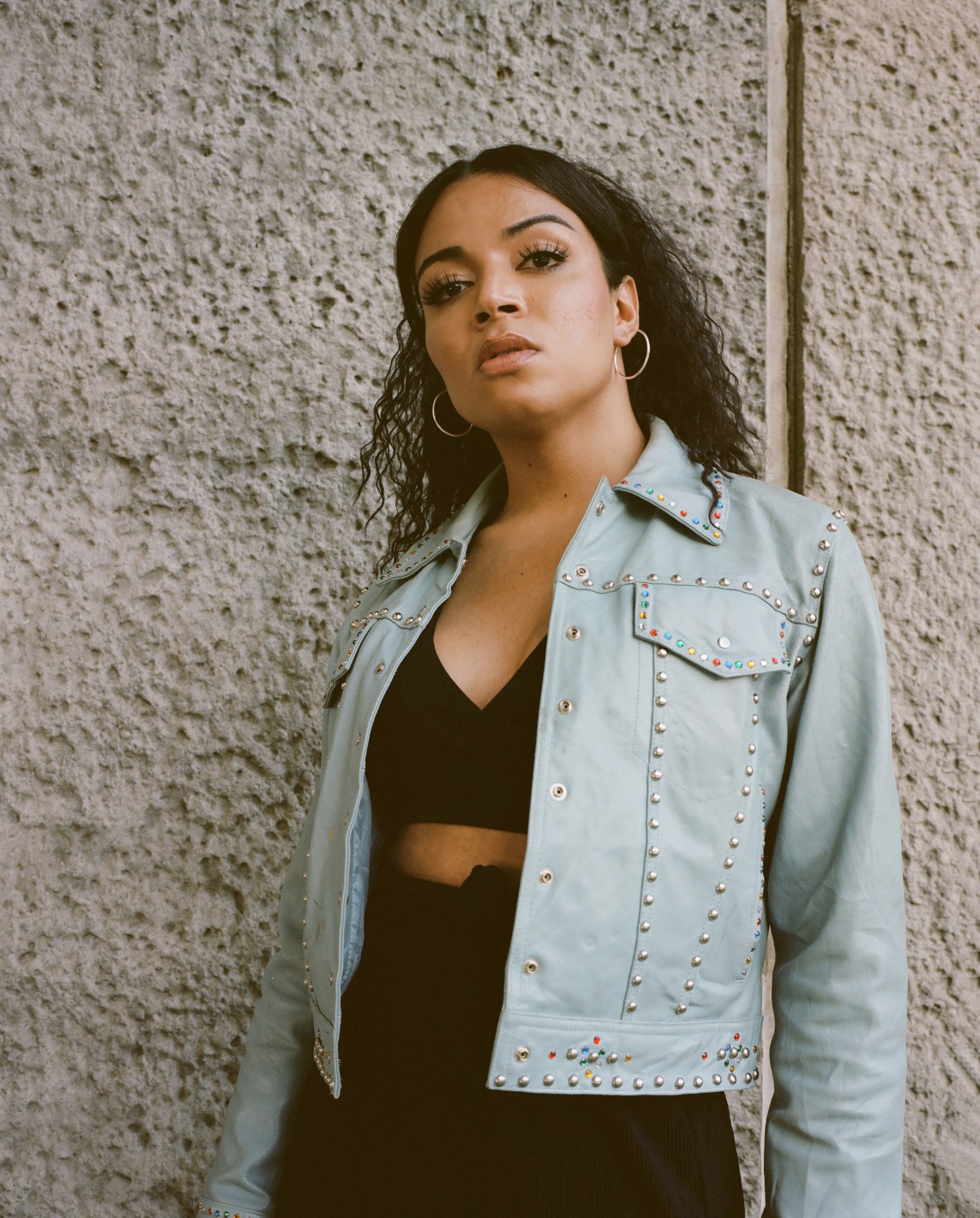
Alexis
What would you like to say to someone reading this?
It’s really horrifying to think of how backward we still are in terms of trans+ rights. I fear for my life as a Black, mixed-race trans woman. If I had to go into the men’s toilet I would stick out like a sore thumb. It would put me at risk of being attacked, raped or even killed. For me, dealing with the NHS and having to prove myself was so draining. I knew who I was but I was so scared in case maybe I said something that would prevent me from being allowed to change my gender. I remember male puberty being the worst thing to ever happen to me, it left me paralysed for years. I didn’t have any access to hormone blockers growing up and I had started puberty quite early. Giving our youth the option to halt puberty would save their lives, reduce PTSD and mental anguish.
What helped you through your younger years?
When I was younger I was very positively influenced by Candis Cayne and Laverne Cox. Candis came first. I saw this woman being given the opportunity to work as an actress in the entertainment industry and just used to think ‘Wow we can live normal lives, it is possible’. Laverne Cox was a game changer for me, particularly because she is a Black trans woman. Watching her in Orange Is The New Black made me feel so positive at a time where I felt a complete mess I saw someone who was trans, tall, femme and queer. This made me feel so assured that I could do it too, I could change my life. I was motivated and I felt so empowered. I look back at my experiences and my decisions and I am so filled with pride.
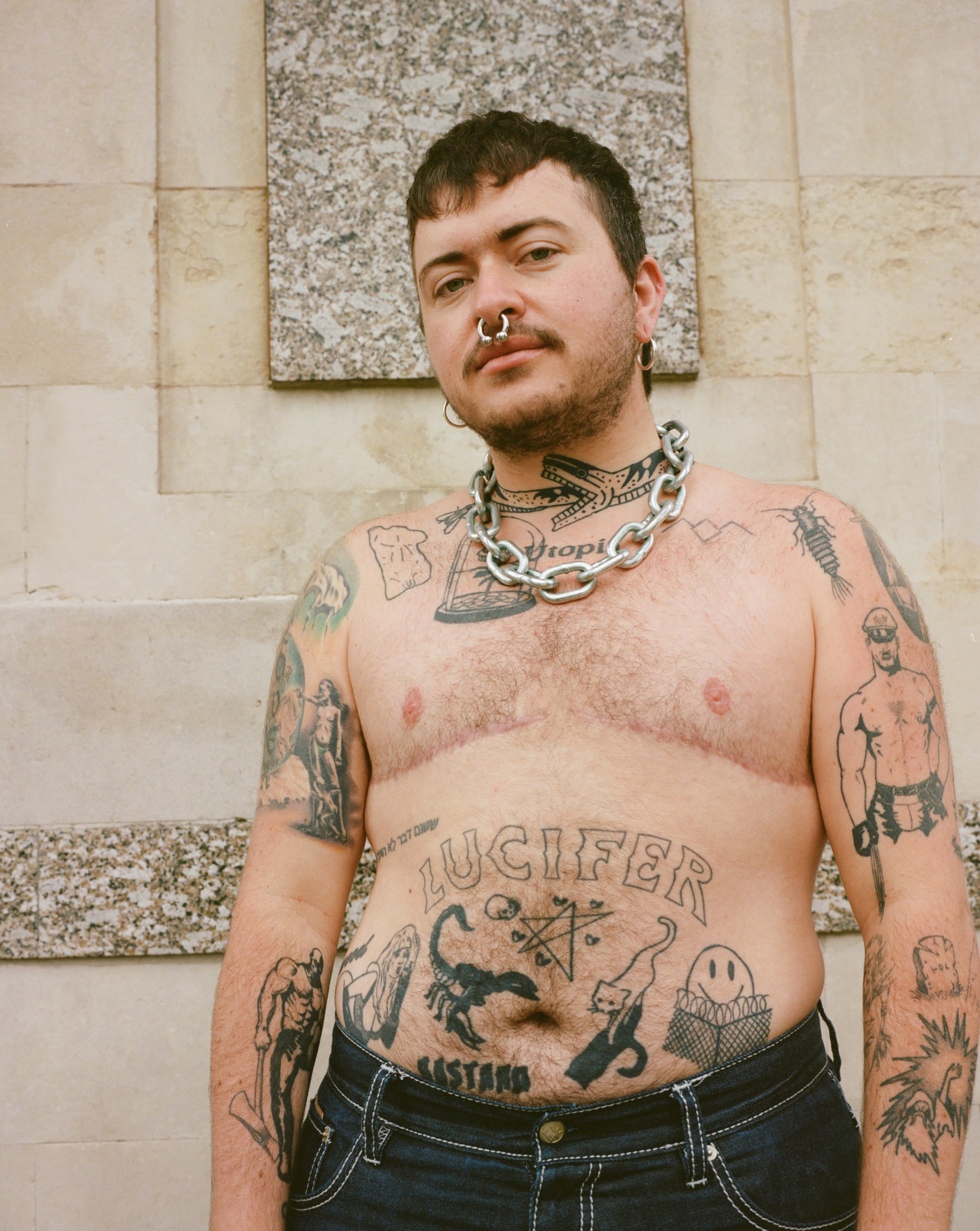
Theo
What would you like to say to someone reading this?
Trans men are grossly underrepresented in media across the board. This has positive and negative value, because I guess no representation is better than the terrible representations of trans women we see in a lot of mainstream media. For many cis people, trans women have become the faces and embodiment of what it means to be transgender. They don’t even acknowledge our existence. I believe this is largely due to the transphobic idea that trans men are not a threat because to many we are still viewed as women. When trans men are more visible, we are portrayed as either very masculine and straight — à la Boys Don’t Cry — or as uWu soft-boys — à la Tumblr or TikTok. For some this works and is representative of their experiences but I actively reject both of these depictions. It is my personal belief that trans men have a unique ability to challenge and upend ideas surrounding masculinity because we were not socialised as men.
Also linked to my gender is my fatness. I cannot think of a single fat trans man who I have seen in popular media. Being a fat trans man is hard. We have hips and curves and have to fight stereotypes about fatness on top of gender identity politics. Even for cis men, fatness is viewed as laziness or gluttony, which is at odds with what society views as manliness and masculinity. Fat trans men who do not have top surgery have a harder time binding and camouflaging their chests (if this is something they wish to do). When we are prescribed hormones we have to listen to doctors talk about our weight, even if this has no strong ties to the reason why we’re there. Even in academia, queer theory often denotes trans men as some sort of off-branch from lesbian and feminist studies. As if there is a direct path from butch lesbianism to trans-masculinity. This is not only transphobic, but also butch-phobic! Butch lesbians do not want to be men! Trans men are not lesbians! In fact, most of the trans men I know personally have never identified as a lesbian, and many of them are sexually attracted to a broad scope of genders, including men.
We have to form our own ideas and images, we have to create our own narratives and worlds. But we can, and we must! Trans+ communities exist. I see you trans-masculine nonbinary people, I see you feminine trans men, I see you gay trans men, I see all of you who refuse to be constricted by the narrow confines of what society has said is our lane.
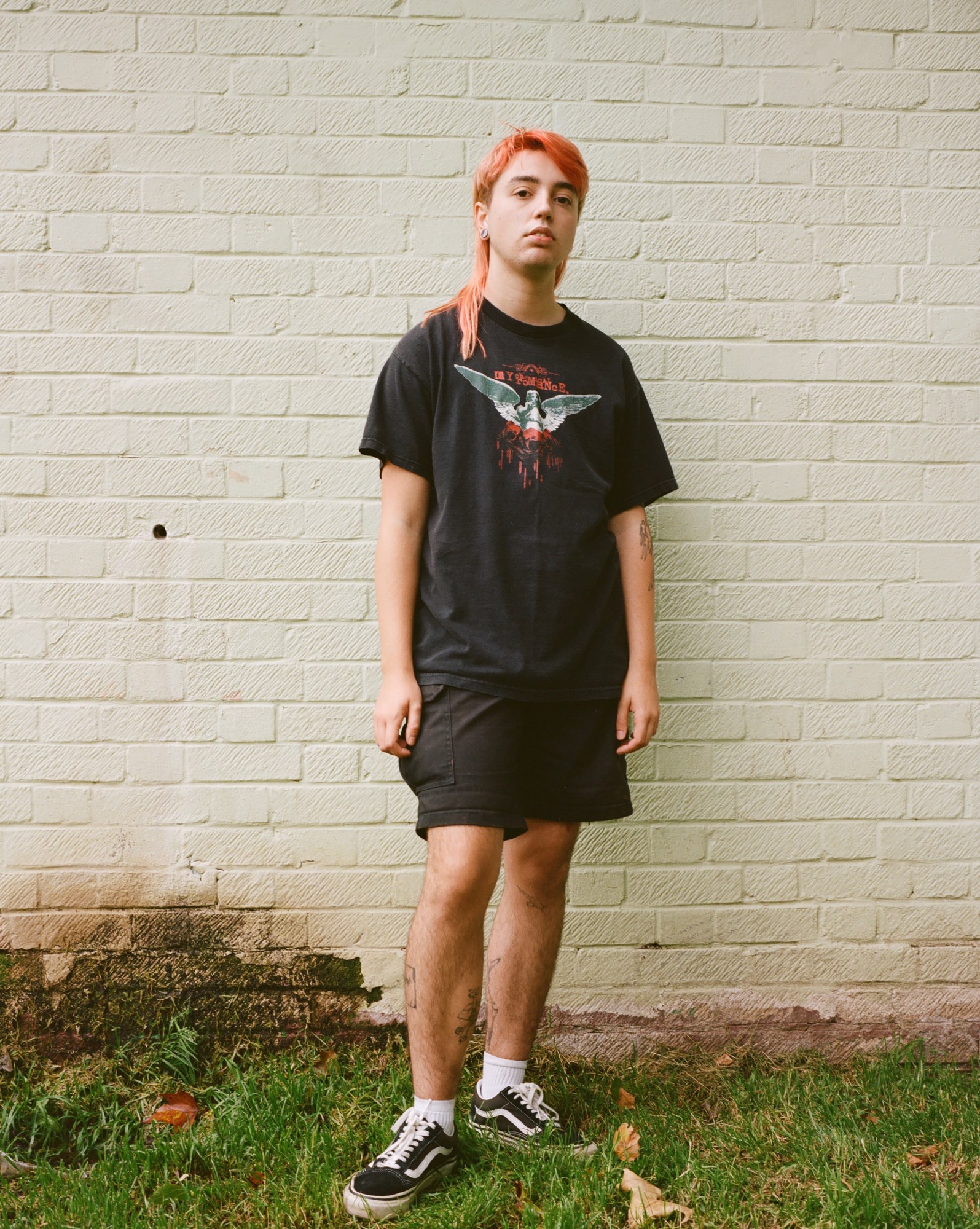
Erik
What would you like to say to someone reading this?
If you are cis and you know someone who is trans+; do NOT try to speak to them about anything negative happening to trans+ people. It’s so exhausting when you open up about your identity and the first thing anyone wants to talk about is how it must be so awful, how the new laws in place must be so upsetting. I don’t want to be told that I’m brave or that my life is difficult, it’s so alienating. Cis people’s problem is that they think they have some sort of ownership over trans+ people, that they deserve to pry and ask uncomfortable questions. It doesn’t matter what genitalia I have, or how my parents felt about me coming out. I’ll speak to you about it if I want to, but in no way is it acceptable to ask.
Looking back at your younger self, are there any books or TV shows, people or spaces you wish you’d known about that you think would be helpful to young trans+ and Gender Nonconfirming people today?
I wish I’d known more about Gendered Intelligence and their support groups when I was younger — it’s such an amazing space to meet other young trans+ people and have the opportunity to be mentored! DIY Space London also has a great mixture of people and is super accessible. There’s an amazing website called Digital Transgender Archive that has a huge collection of trans+ history materials such as zines, newsletters, speeches, papers and publications. I couldn’t recommend it enough for looking into the history of Gender Nonconfirming people and remembering that we have always existed.
The responsibility of improving the state of trans+ rights should not be left to the trans+ community, what improvements would you like to see from society that would make you feel safer day to day?
I think one of the best questions our society could ask themselves is… is this any of my business? If you’re wondering which side of the gender spectrum someone is on — stop. If you’re not sure if someone should be in the same bathroom as you — think no further. If you don’t know how you feel about trans+ people receiving healthcare — don’t worry, you don’t have to! Trans+ people’s lives, surprisingly, don’t affect cis people at all. If everyone realised that then the world would be a much safer place for us.
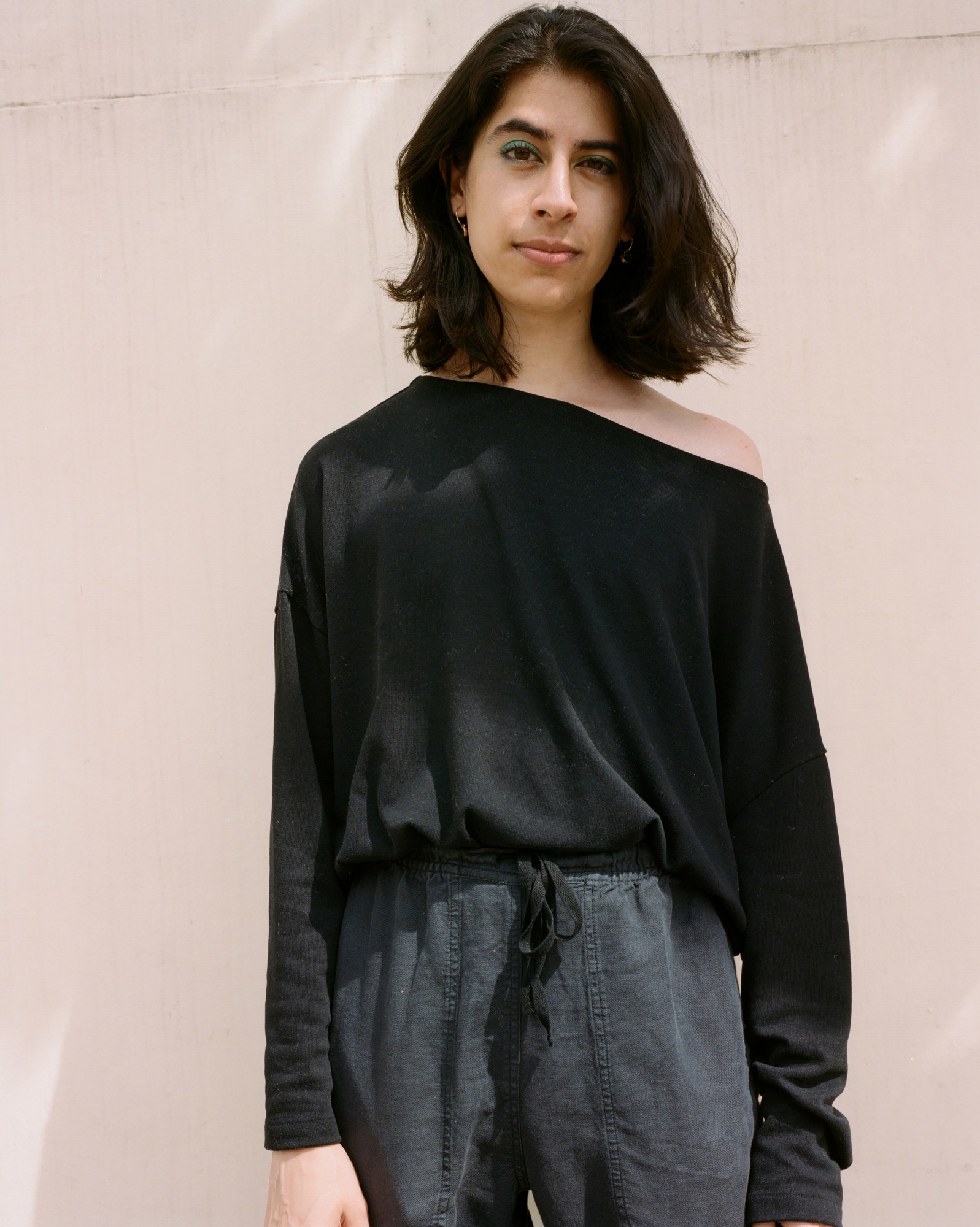
Mirra
What would you like to say to someone reading this?
It is part of the human condition to categorise the world around us. Binaries provide simple meanings for our experiences. Yet the label of ‘man’ and ‘woman’ were a noose around my neck. An easy and familiar binary against which I chaffed. When I was 11, I stood in the school playground under the sweltering Pakistani sun playing with my shadow. If I stood just right, I could imagine the shorts I had on — part of the boy’s school uniform — had become a skirt. Never mind my much-loathed buzzcut. I daydreamed of long hair curling on my neck. I often remember this moment when I have a good hair day and think: ‘If only my younger self could see me now’. I have always felt feminine. I struggled with the unspoken rules that bound the boys and girls around me. Berated myself for not fitting in. I can recount countless examples of this story, being forced into an ill-suited mould to meet the expectations of others. I’ve always been drawn to people who challenge these stereotypes and this has been my saving grace. Living as a trans person is a revolution. It is the path less travelled. Taking ownership of your body and using it to express your inner truths. All human life is worthy of love, dignity and respect!
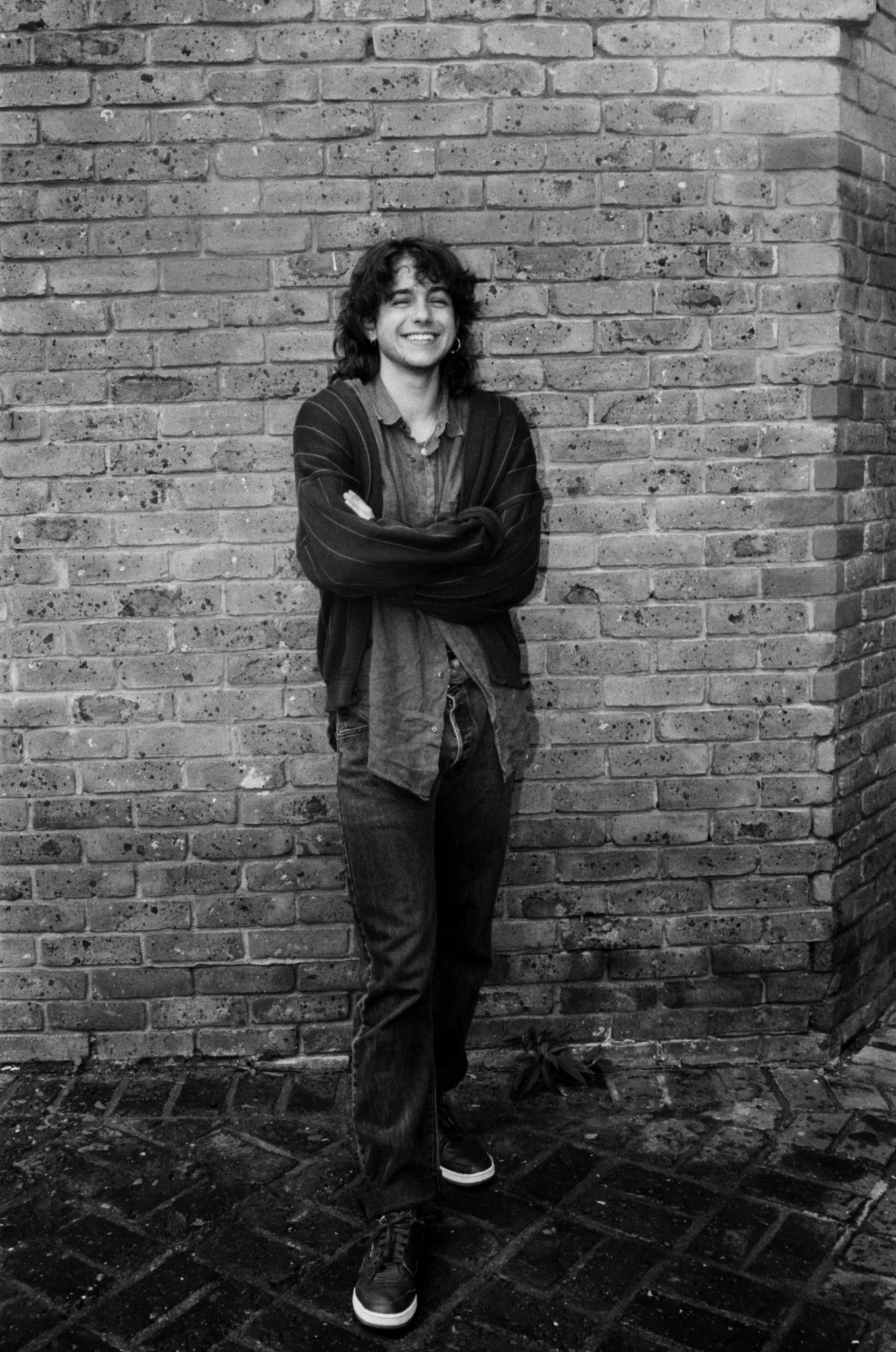
Lou
What would you like to say to someone reading this?
I experience my transness as growth — my body creaking and straining at its predetermination, my self unfolding into something strange yet sturdy, settling into alignment. In the past, mine has been an experience of secrecy, a life of rules and lines that I may not break for fear of threatening everything. I now work with homeless people, most of whom have been told, in so many ways, that they are undeserving of full life. My work rests on building relationships of trust and mutual respect. It is work that can demand all the compassion and energy I have to offer and work I couldn’t have weathered before ‘coming out’. Too much of myself was concealed and locked away. My clients are kind and gracious, and my gender identity barely an afterthought compared to my knowledge, attention, and advocacy. I am growing into a self beyond my imagination not so many years ago.
Transness in today’s news seems most often to be framed in terms of fear. This fear is capacious and seems to have mired us all. For example, I fear all bathrooms, being ID’d at the supermarket, seeing school friends, old partners, my mum’s family, getting dressed… I fear street harassment, corrective rape, conversion therapy, being outed, shamed, vilified, attacked, denied my hormones, losing my job. We know all these. Our throats are raw with the names of murdered Black trans women, our hands shaking at yesterday’s run-in, that incident from the week before.
But we also know love — for each other, for those who discredit and discard us, for ourselves and our hard, extraordinary journeys. We walk into the bathroom to piss because, well, we must. We seek out hormone replacement therapy, or gender-affirming surgery; we disclose to a parent, friend, or lover. We extend to our society more grace than it ever proffers us. This grace — this hope, this trust — is shattered time and time again. But, at its core, is the conviction that nothing should be worse than denying one’s to one’s self. This makes us vulnerable. Many trans people wake up each day to consider the litany of things that could be worse than hiding away their true self. Death, destitution, destruction. And those with power — politicians, employers, medical professionals, JK Rowling — seemingly notice the risks and rewards of trans existence and decide we have more than we deserve.
Powerful people argue that legislatively enshrining trans people’s right to healthcare, treatment, refuges, shelters, and self-identification — to dignity, respect, representation, and safety, in short — threatens hard-won protections for other vulnerable groups (which, of course, these powerful people did not fight hard to win). The insistence that trans people are considered as a ‘species apart’, for me, is telling. These people do not know our history or want our histories known — that trans people have been fighting for justice, shoulder-to-shoulder with those who loved them and those willing to throw them under the bus, since the draw of time. Trans struggles highlight the essential fuckery and futility of so many of our systems of control — our carceral, legal, medical, and policing systems, to name a few.
Life — living and dying, harming and healing — is no one’s property and everyone’s concern. Transness undoes gender and re-animates it, as a site where our most basic hopes for recognition and flourishing are revealed. Trans people are scared, hopeful, and full of promise. In the face of fear, we choose and choose again to live for each other.
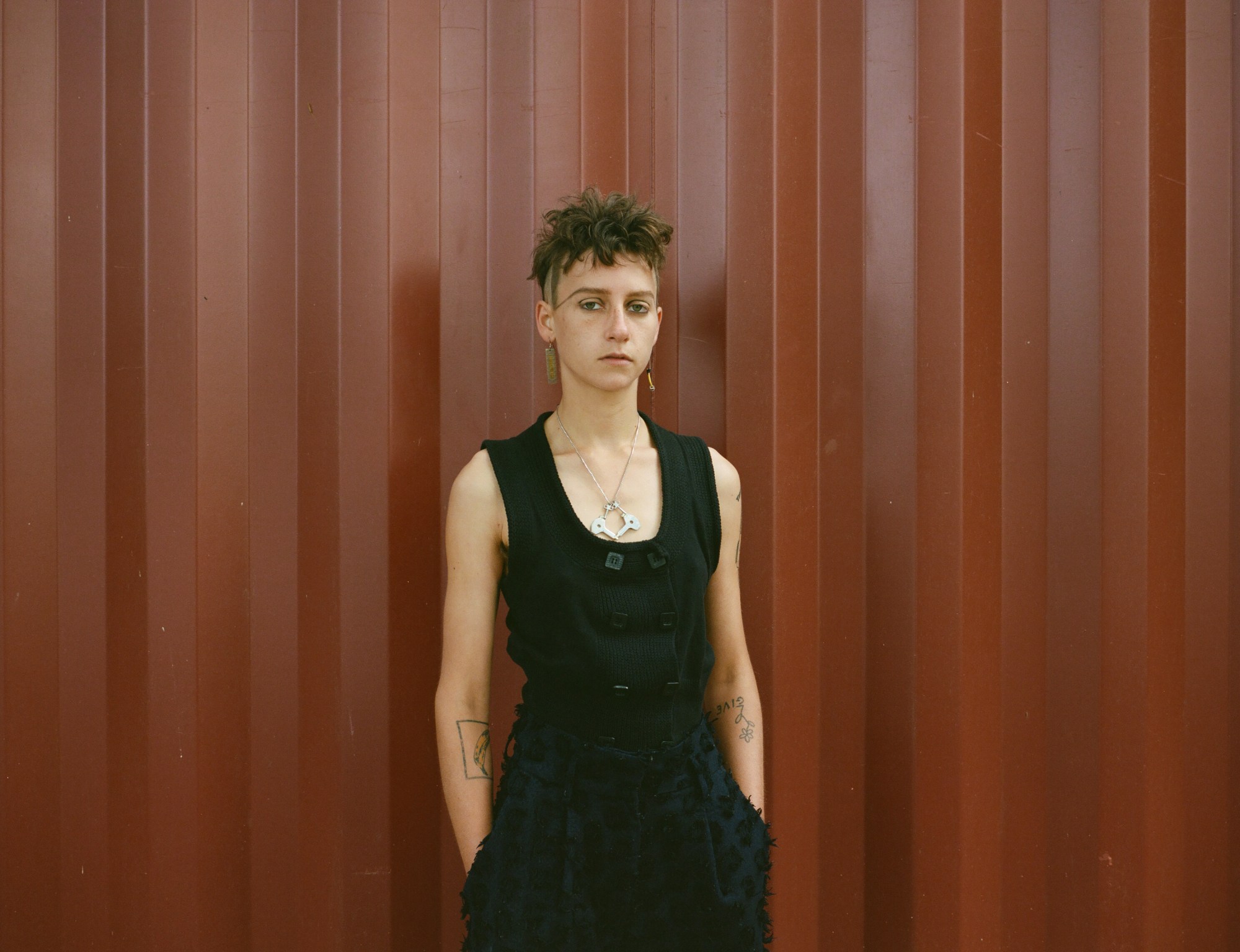
Teddy
What would you like to say to someone reading this?
As a young British nonbinary person, it’s clear that there’s a modern and heavy pressure on everyone to work out their own identity. Cisgender men and women make these individual choices too, sacrificing parts of life, work and love for the gender they identify with. Binary trans people move from one set of constraints to another. To me, the roles of traditional man/woman seem unnecessarily constricting for anyone, especially in this world of ‘choice’. A crazy part of being trans/nonbinary is that the media claims your liberation, while legislation, welfare and social dynamics systemically invalidate it. State/council services like refuges, toilets, healthcare and law enforcement enshrine MAN and WOMAN in sacredness, without breaking open the real potential of dignity and safety for every human person. There’s so much anxiety in reconsidering this because it feels like a personal attack on the legislators, on the population — on everyone. In most countries, rights are being taken away from queer people, and violence, in attacks and alienation, really is everywhere. But this isn’t regression. This is stagnation, which is no better. We still haven’t yet come much further than this.
Looking back at your younger self, are there any books or TV shows, people or spaces you wish you’d known about that you think would be helpful to young trans+ people today?
Gender began to make sense to me and bring me joy when I realised it’s about a performance of how I relate to myself. Artists like Bowie and Prince, Grayson Perry, Laurie Anderson, RuPaul, Laverne Cox, the Dadaists and Asco art collective have all been great doors to seeing how I can communicate through gender. Films and series like Paris Is Burning, Blue Is the Warmest Colour, Harold and Maude, Rocky Horror and Pedro Almodóvar’s stuff began opening me up to an awe and excitement in being bold and intuitive with gender.
Have you experienced anything recently that gives you hope for the future?
I was serving a family at a bar and the kid said “Is that a boy or a girl?” — a classic from kids! — and the parents said I might be either or neither. That kind of interaction is happening more and more. Drunk guys on the street late at night telling you they respect you. Being told by a partner they see me as both man and woman, even though I know my body doesn’t say that biologically. It’s not always like that, and none of this shit’s good enough until the economy stops profiting off gender fashions and niches, until Black, Brown, tall, fat and hairy people who don’t conform to gender norms are recognised and represented as much as their fem-presenting, white, wealthy counterparts. But I do feel a shift in language, and that’s always a sign of minds changing.
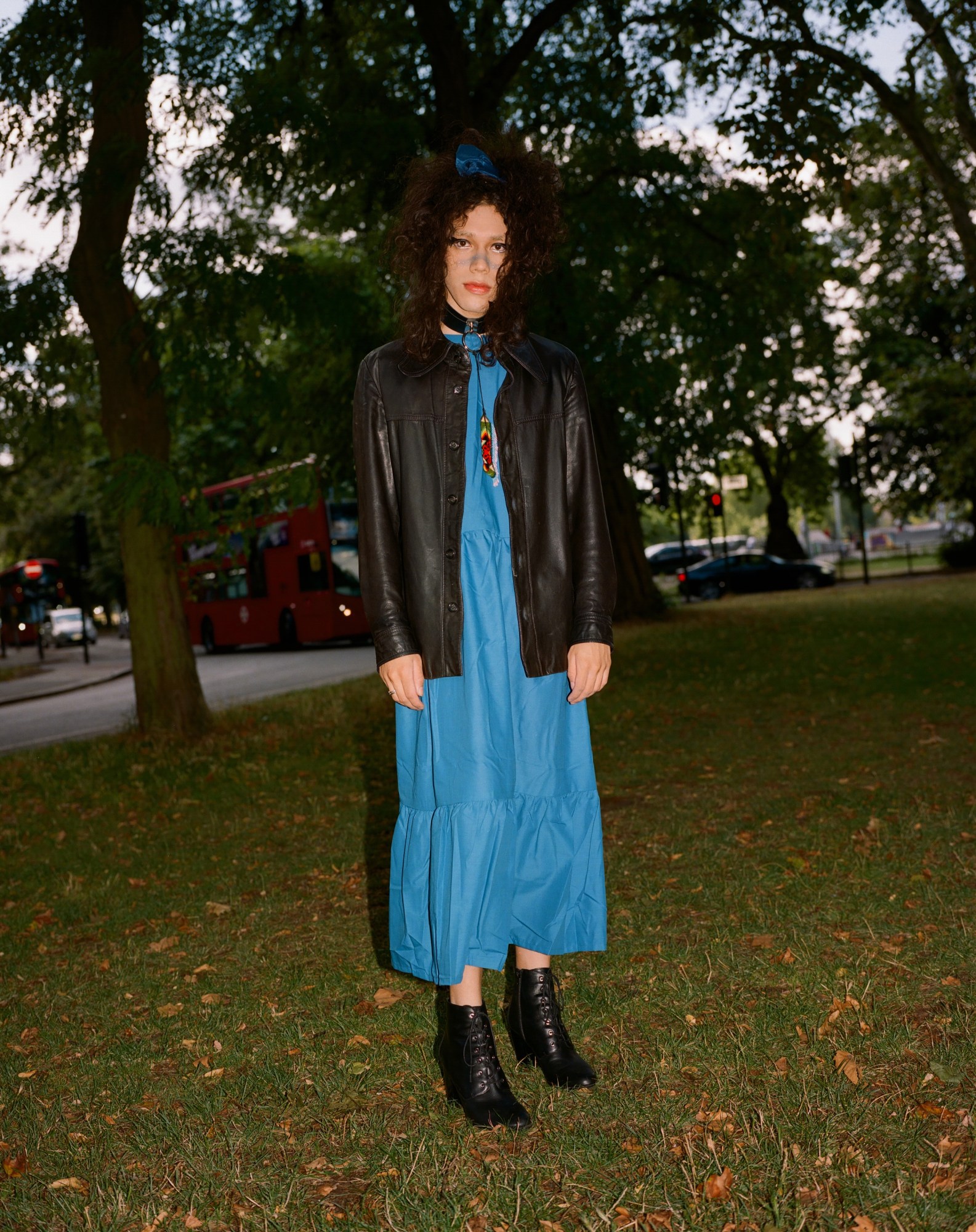
Magda
Have you experienced anything recently that gives you hope for the future?
I would say that what has brought me hope has been my increased exposure to a Black Radical tradition. Black Lives Matter has pushed for the publicity of abolitionism and restorative justice in a way that’s been central for any hopeful futurity. Both help provide a therapeutic approach to trans identity and have created the most substantive opening for gender presented by any mass movement of recent. To me, emotionally, it’s felt like an acknowledgement of overdetermination — that, to a certain degree, the world has put you in a place, and has given you the materials, and that to etch yourself out and into something new is necessarily a process of healing and growth.
Systems of overdetermination are carceral and regulatory — they are racialised and gendered in ways that demand intersectionality. Something that made me joyful was seeing an Angela Davis interview, where she noted that “the trans community taught us that it is possible to effectively challenge that which is considered the very foundation of our sense of normalcy”. It’s been central for me too to acknowledge that the production of this normalcy is indistinguishable from racialised ethics of ‘crime and punishment’, the prison-industrial-complex, and indistinguishable from the legislated binaries on which whiteness rests (Black/white, innocent/guilty, male/female). People need to continue to support BLM and commit themselves long-term to seeing through the kinds of changes that are imperative (personally, monetarily and organisationally) as trans liberation isn’t just an abolition of gender, but of the violent systems that produce it.
Credits
Photography Jesse Glazzard
